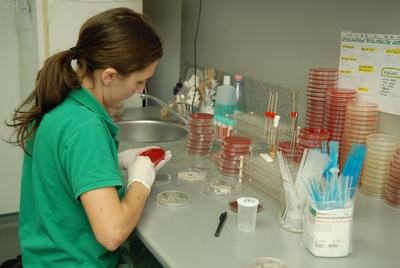Third-party audits and third-party micro sampling can provide a snapshot view of what is going on in an operation. Observations of actions and document review might be an indicator as to whether the organization has the system to manage risks; sampling (of equipment, product or inputs) also might provide some insights into whether systems are working. Both are only useful if whomever requested them does something with the results.
According to court records reported by Ryan Foley of AP, Wright County Eggs knew of high rates of Salmonella Enteriditis in their flock, but whether they did anything to reduce the likelihood of the pathogen spreading to egg-eaters is unclear. Salmonella from Wright County Eggs was the source of an outbreak linked to over one thousand illnesses in 2010.
An Iowa State University scientist found evidence that sick hens at farms owned by an Iowa egg producer were "almost certainly" laying eggs contaminated with salmonella months before one of the nation’s largest outbreaks of food-borne illness came to light, newly released records show. ISU’s Veterinary Diagnostics Laboratory found salmonella in manure at several Iowa egg-laying plants and in the internal organs of their birds, which were dying at unusually high rates, about four months before the August 2010 recall of 550 million eggs linked to the outbreak, records show.
DeCoster’s farms had asked the laboratory to test for salmonella at its Iowa egg plants as they prepared for federal rules to take effect in July 2010 that required mandatory testing for the bacteria at different stages of production. In January 2010, scientists collected samples from several plants. Testing the next month detected salmonella, and additional samples were collected.
By late April 2010, scientists had discovered that 43 percent of DeCoster’s poultry houses in Iowa were testing positive for salmonella, emails show. Around the same time, DeCoster’s managers started noticing a high mortality rate of chickens at some plants and sent dozens of carcasses testing.
It is not clear what DeCoster’s operations did after receiving the reports. Charles Hofacre, a University of Georgia scientist who was consulting on the companies’ safety program, sent a May 28 email to DeCoster executives proposing several steps to clean up the conditions, warning, "We have to get this level of SE knocked down!"
